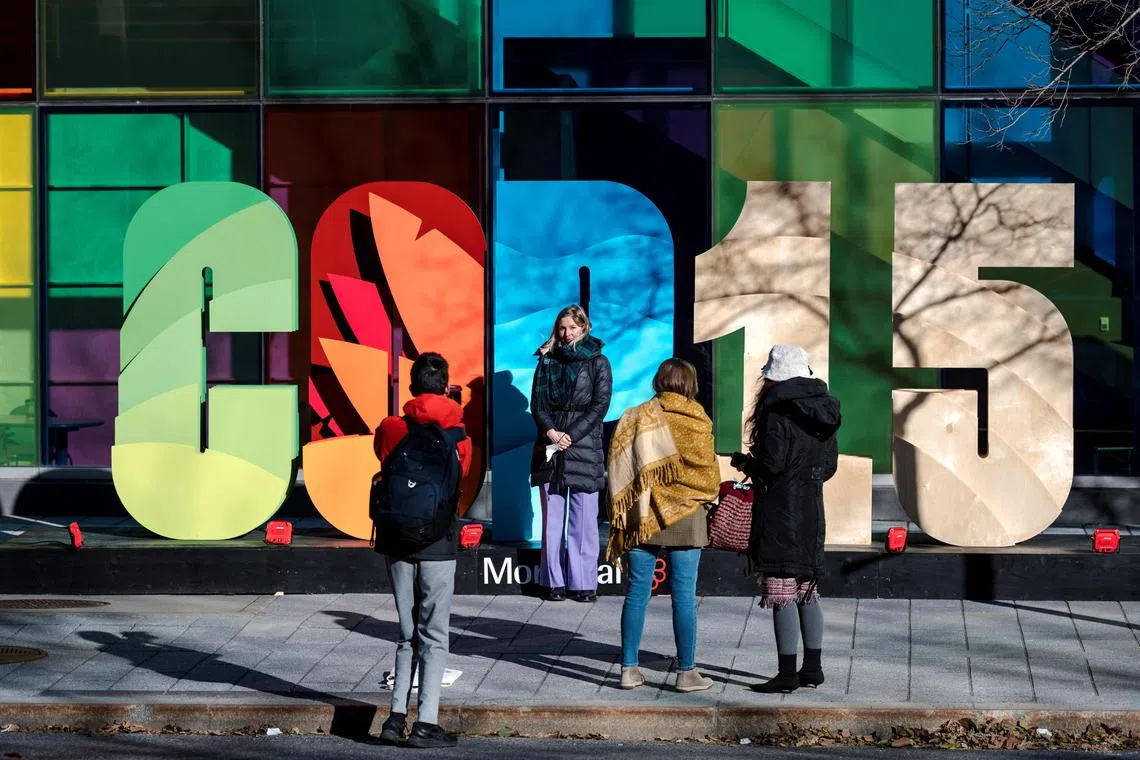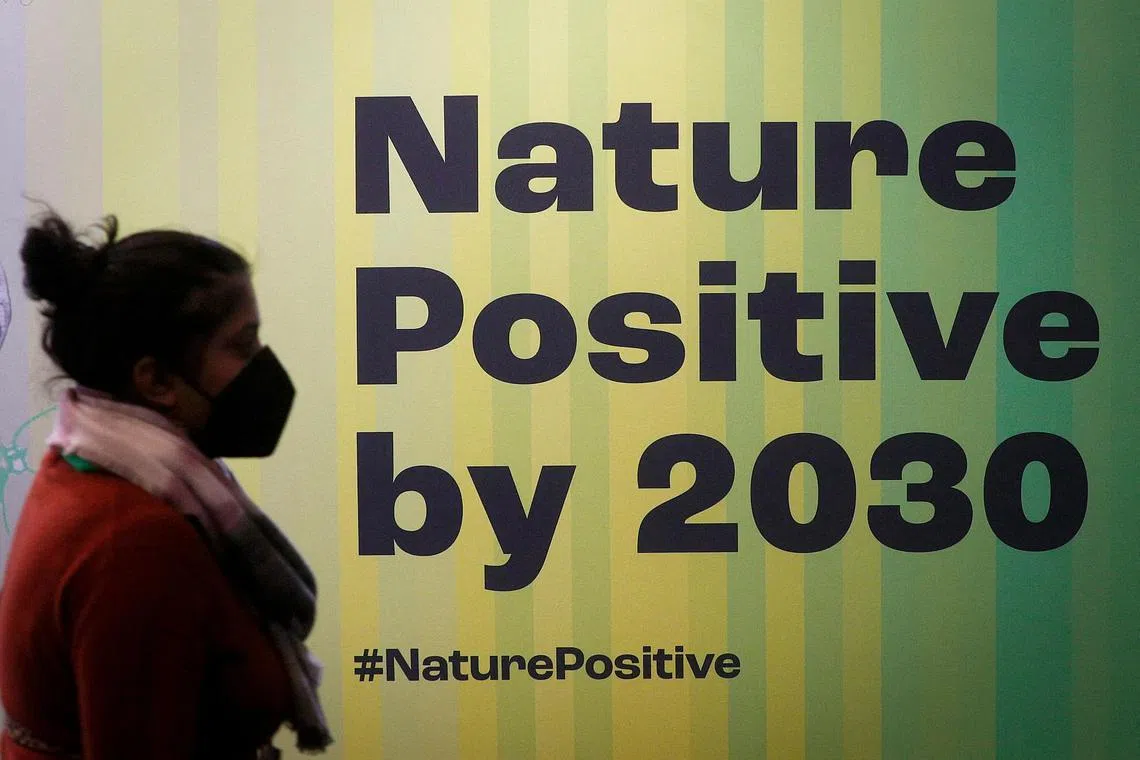Developing nations halt COP15 talks after biodiversity fund demand
Sign up now: Get ST's newsletters delivered to your inbox

At stake at the COP15 summit in Montreal is the health of the Earth’s ecosystems.
PHOTO: AFP
MONTREAL - Delegates from dozens of developing nations walked out of crunch financing talks overnight at the United Nations COP15 biodiversity summit
Several sources said representatives of about 70 countries – mostly African states but also including Argentina and Brazil – left the meeting at about 1am on Wednesday in protest over a perceived lack of progress on funding for nature protection efforts worldwide.
Most of these governments had earlier joined forces at COP15 to call for a new dedicated biodiversity fund,
Mr David Ainsworth, a spokesman for the UN Convention on Biological Diversity, which is running the summit, confirmed the walkout to journalists on Wednesday.
While there were differences over several matters, the issue of the proposed new fund seemed to have precipitated the developing nations leaving the talks in protest, he said.
Under negotiations on a financial package for action to safeguard biodiversity – called resource mobilisation – the complex question of how funds should be deployed has become a central issue at the conference, due to end next Monday.
Money to boost nature conservation falls severely short, green groups have warned, with a 2019 assessment by several conservation institutes estimating a funding gap of more than US$711 billion (S$963 billion) a year.
The Global Environment Facility (GEF) has been the main source of financing for biodiversity protection since 1991.
Set up as a World Bank pilot programme, the GEF has provided about US$25 billion in grants to developing nations to date, and has collected US$5.3 billion from donors for the 2022-2026 period – with 60 per cent of this money earmarked for biodiversity projects.
The group of developing countries said a new biodiversity fund was needed to ensure timely and direct access to cash based on needs, and that it should draw on lessons learnt from the successes and limitations of existing funds, including the GEF.
These nations are home to many of the world’s most crucial natural areas, from rainforests to coral reefs, as human-caused destruction threatens up to one million plant, insect and animal species with extinction, according to a 2019 UN report.
Nigerian conservationist Joseph Onoja said at COP15 that it was hard for local groups in his country to access global funding to protect nature and biodiversity.
Such cash is often instead directed to international groups, he said in an interview on the sidelines of the summit.
“Local organisations are the ones that are closer to the people, who know exactly the situation on the ground, who run the day-to-day activities,” said Mr Onoja, the director-general of the Nigerian Conservation Foundation.
The European Union, the GEF’s largest donor, has pushed back against creating a new biodiversity fund – citing the time it would take to set it up.
However, as ministers begin to arrive in Montreal for high-level political talks, Canada’s Environment and Climate Change Minister Steven Guilbeault said there has been some progress towards a compromise on funding.
“Clearly, we need to listen to what our partners in the Global South, and particularly the African countries, are telling us regarding issues of access, transparency and predictability,” he told reporters on Tuesday.
Mr Guilbeault said an idea to create a new fund within the GEF dedicated to the global nature pact – put forward by a small group of nations led by Colombia – was very constructive.

The issue of how funds should be deployed to safeguard biodiversity has become a central issue at the COP15 conference in Montreal, Canada.
PHOTO: AFP
One of the countries pushing for a dedicated biodiversity fund is Brazil. Ms Karen Oliveira, policy director of The Nature Conservancy in Brazil said it could unlock additional funding and facilitate implementation of nature and conservation programmes.
Ms Oliveira said funds from the GEF had been vital in Brazil – from protecting oceans to reducing deforestation – but that its strict safeguards, bureaucracy and timelines make it harder for the nation’s federal and state governments to execute projects.
However, she struck a pessimistic note about the prospect of finding new funding as donor nations struggle with inflation and an energy crisis following Russia’s invasion of Ukraine.
“The global scenario is not very receptive to create new funds at this moment,” Ms Oliveira added.
The amount of cash on the table for the proposed global nature pact is expected to be hashed out in political discussions when ministers launch a final push on Thursday.
Negotiations over the shape of an agreement on resource mobilisation – including government funding for nature protection, along with other sources such as the private sector – aim to prepare the ground for those ministerial discussions.
Green groups say rich countries should give US$60 billion annually to help developing nations hit their nature targets.
Nigeria’s Mr Onoja said it is key that more biodiversity funds start flowing to developing countries, and that wealthy nations should stop being condescending in talks on the issue.
“It shouldn’t be seen as if they (rich nations) are doing the developing world a favour by bringing money,” he said. “The Global South is also doing a favour by providing biodiversity.” REUTERS


